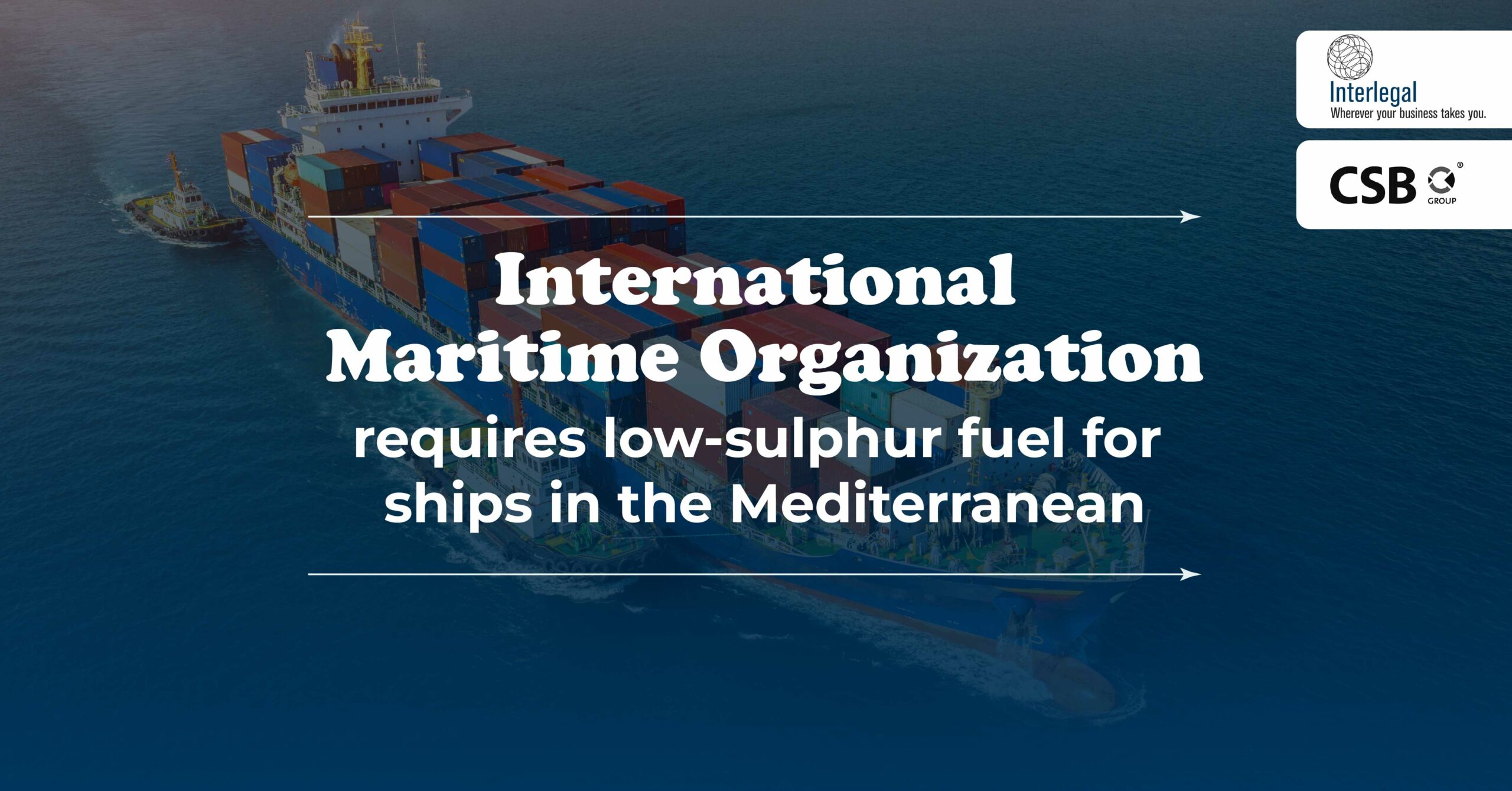In December 2022, at the 79th session of the International Maritime Organization’s (IMO) Marine Environment Protection Committee, the IMO took action in order to create the Mediterranean Sea Emission Control Area (SECA) for Sulphur Oxides and Particulate Matter. This was done by amending Annex VI of the International Convention for the Prevention of Pollution from Ships (MARPOL) and the consequence of this amendment means that the Mediterranean will be designated as a SECA, hence requiring all ships to use fuels with a sulphur content of 0.1% whilst voyaging through the Mediterranean.
The shipping trade plays a significant role within the global trade industry considering the fact that a substantial percentage of world trade takes place through our oceans. Due to this dominant role, ships are also the main contributors of harmful emissions effecting the marine environment. This problem was identified and tackled by the international forum, thereby creating the extremely effective and successful MARPOL, aimed at combatting pollution from ships, both in relation to routine operations and accidental causes and which today has over one hundred seventy signatories.
MARPOL contains 6 technical annexes which deal with the in-depth regulations used to combat pollution from ships and of particular interest is Annex XI (Prevention of Air Pollution from Ships) which entered into force in May 2005. This annex sets caps on the emissions such as sulphur oxide, nitrogen oxide and other emissions detrimental to the ozone layer. Importantly, it also creates specific areas known as Sulphur Emission Control Area (SECA) which impose more stringent regulations for sulphur oxides, nitrogen oxides and particulate matter emissions.
The creation of various SECAs as well as the implementation of the Annex XI regulations has propelled the IMO to reach various milestones. One such milestone was achieved in 2020 when a mandatory Global Sulphur Cap known as the ‘IMO 2020’ was adopted, requiring the maximum sulphur content found in fuel used by ships to be reduced to 0.5% from the previous 3.5%. However, the IMO did not rest on their laurels. Towards the end of 2022, as previously stated, the IMO adopted the Mediterranean Sea Emission Control Area for Sulphur Oxides and Particulate Matter. This adoption was spurred by an initiative created within the framework of the Barcelona Convention and submitted to the IMO jointly by the Mediterranean States and the EU. The practical effect of the said adoption is that the Mediterranean Sea will be designated as a SECA, meaning that ships in the Mediterranean are required to use a marine fuel which contains a 0.1% sulphur content, as opposed to 0.5% sulphur content. This will affect all vessels in the Mediterranean Sea. However, it is fundamental to note that such amendments will only become effective on the 1st of May 2025. This is because the amendments will come into force in May 2024 and will be followed by a 1-year grace period. It will also render the Mediterranean Sea as the 5th area to be designated as a SECA, together with the North Sea, various areas in North America, the Baltic Sea and the United States Caribbean Sea.
The effects of the Mediterranean Sea being designated as a SECA are projected to be substantial. The UN Environment Programme estimates that there will be a reduction in the emission of sulphur oxide by almost 80%, which translates to a reduction of 8.5 million tonnes of sulphur oxide per year, together with a decrease of particulate matter by almost 25%. This will undoubtedly have extremely beneficial effects on the environment. Furthermore, humans will also benefit from said adoption. It is projected that these effects will prevent at least 1,000 premature deaths and 2,000 new cases of child asthma every year. Furthermore, the reduction in emission will also enhance visibility inland and at sea, thereby making transport safer.
The adoption of the Mediterranean SECA for Sulphur Oxides and Particulate Matter is a result collaboration between various Mediterranean countries and the EU. Although this adoption creates an added responsibility for ships in the Mediterranean, it is in line with the overwhelming trend of reducing the emissions by ships of various harmful substances. As previously stated, such a trend will certainly create a multitude of benefits to the climate, the environment and to humans. This is why the IMO has created SECAs, and it is also why various other countries all over the world such as Israel, Turkey, Australia, and China have emulated the requirements imposed in SECAs by designating their own stringent limits in relation to sulphur emissions.
To read the original article: https://www.csbgroup.com/articles/international-maritime-organization-requires-ships-to-use-fuel-with-less-sulphur-content-when-in-the-mediterranean-sea/
